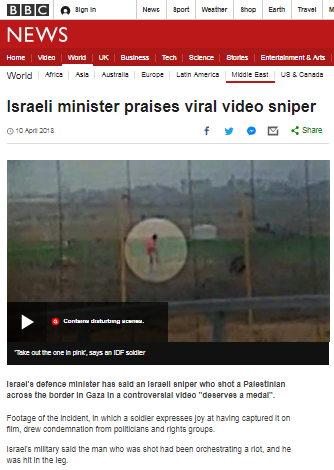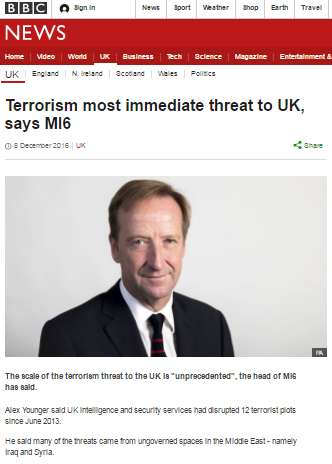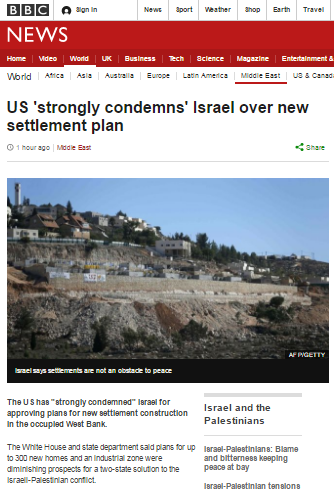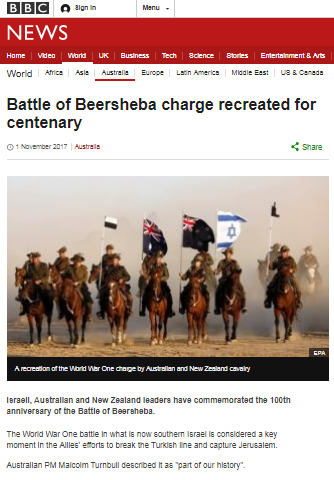Back in August listeners to BBC Radio 4’s ‘Today’ programme heard a report from Yolande Knell on the topic of property transactions carried out by the Greek Orthodox Church in Jerusalem.
Inaccurate and partial BBC Radio 4 report from Jerusalem’s Old City
In his introduction to the item presenter Justin Webb told audiences that: [emphasis in italics in the original, emphasis in bold added]
“The development’s taking place amid a recent increase in settlement building in occupied East Jerusalem and the West Bank…”
We noted here at the time that:
“Webb provided no evidence to support that misleading claim of “a recent increase in settlement building”. Even if his intention was to comment on construction within existing communities rather than to assert that an increased number ‘settlements’ had been recently built, the basis for that claim is unclear because the available statistics run only until the end of March 2019 and they show a decrease in construction completes in Judea & Samaria.
Both Justin Webb and subsequently Yolande Knell told BBC audiences that the story is about “the sale” of properties owned by the Greek Orthodox Church. That is not the case: the story is actually about 99-year leases for three properties (rather than two as claimed by Webb).”
BBC Watch submitted a complaint concerning those issues on August 28th. On September 5th we were informed by BBC Complaints that “it may take a little longer before we can reply”. On September 24th we received a message informing us that “we’ve not been able to reply to your complaint within the time period we aim for”.
On October 2nd we received the following response from BBC Complaints:
“Thank you for contacting us regarding the Today programme, broadcast on Thursday 22nd August.
Firstly, we’re sorry about the delay in getting back to you. We know people appreciate a prompt response and unfortunately we’ve taken longer to reply than usual – please accept our apologies.
We have spoken with the Today programme team about your concerns. In the intro to Yolande’s report we said, “Church leaders and Palestinians in Jerusalem are calling for international pressure on Israel to stop Jewish settlers from taking over two historic properties at the main entrance to the city’s old Christian quarter. The Greek Orthodox Church has filed a new lawsuit trying to overturn a Supreme Court ruling on the sale of their hotels saying it was clear proof of corruption. The developments are taking place amid an increase in settler building in occupied East Jerusalem and the West Bank, as Yolande now reports.”
While it is correct that the disputed sale of the Imperial Hotel happened around 15 years ago, we consider it was made clear both in the report and in the intro that this report was specifically focussing on the current lawsuit. Yolande also made it clear within her report that Walid Dajani has been renting the lease on the hotel, rather than being the owner of this building.
On your point about the size of the settler population, it is an established fact that number has been increasing over the past decade. The phrasing used is perfectly acceptable in a short intro, where not every detail can be explained.
We hope this has clarified the issues being raised within this report. We don’t consider that this report contained any inaccuracies on these points.”
BBC Watch then submitted a second (Stage 1b) complaint pointing out that although Knell did indeed state that Dajani had been renting the lease on the hotel, in contrast to that one statement, listeners heard three references to the “sale of the hotels”, “bought the building” and “sale of the property” which are inaccurate and misleading.
We also pointed out that although it was claimed in the reply that Justin Webb referred to “an increase in settler building” he did not – he in fact used the words “a recent increase in settlement building” – and we noted that:
“There is a difference between settlers (people) and settlements (places). While the number of people the BBC brands “settlers” may have “been increasing over the past decade” the number of communities of the type the BBC labels “settlements” has not. Webb referred to “settlement building” which reasonable members of the audience would take to mean the building of settlements rather than the number of people living in such communities. Listeners would therefore understand – erroneously – that the number of communities had increased recently and would therefore be misled.”
On October 15th we received a reply which BBC Complaints took it upon itself to declare a Stage 1a response, thereby making up the rules as it goes along.
“Thank you for taking the time to contact us again. We are sorry to learn that you were not satisfied with our earlier response.
I’m sorry you had to come back to us and I appreciate why. We always aim to address the specific points raised by our audience and regret any cases where we’ve failed to do this. Your [sic] previous reply didn’t tackle the exact issue you raised and we’d like to offer you a new response here. The following should now be considered your first reply.”
BBC Complaints then admitted that it had misrepresented Webb’s words in the previous reply.
“We have spoken further with the Today programme about your concerns. They would like to respond with the following:
“We have listened again to the broadcast and you are right to say that the introduction spoke of “a recent increase in settlement building in occupied East Jerusalem and the West Bank” not “an increase in settler building.” We’re sorry for the misquotation in our reply.
You suggest there is a difference “between settlers (people) and settlements (places)” but in this case we think this is a distinction without a difference.
Settlements invariably expand on their existing sites, and last month, for example, the AP news agency reported that in the first two years of Trump’s presidency, authorities had approved 1,861 housing units in East Jerusalem settlements, a 60% increase from the 1,162 approved in the previous two years. The figures, obtained by ‘Peace Now’, showed that 1,081 permits for settler housing were issued in 2017 alone, the highest annual number since 2000.
More generally, the Israeli government has approved approximately 6,100 settlement housing units this year, according to the UN. By comparison, it approved 5,600 housing units in all of 2018.
https://www.ohchr.org/EN/NewsEvents/Pages/DisplayNews.aspx?NewsID=24881&LangID=E
Rising Violence, Settlement-Expansion Continue to Spark Israeli-Palestinian Tensions as Talks Remain Stalled, Top Official Tells Security Council
https://www.un.org/press/en/2019/sc13930.doc.htm”
As we see the BBC not only cites the notoriously biased UN Human Rights Council and its highly controversial ‘special rapporteur’ but also the partisan political NGO ‘Peace Now’.
We also see that the BBC cites third party reports of on-paper-only building permits as ‘proof’ of an increase in building, rather than actual construction completes. As we have noted here in the past, that long existent practice denies audiences of accurate information essential for proper understanding of the topic.
The BBC’s inaccurate and misleading representation of Israeli building – part one
The BBC’s inaccurate and misleading representation of Israeli building – part two
Data published by Israel’s Central Bureau of Statistics last month concerning construction in Area C of Judea & Samaria clarifies that the BBC’s claim of “a recent increase in settlement building in…the West Bank” – even if one takes that to mean construction in existing communities – is questionable.
Notably the second response received from BBC Complaints did not address the issue of audiences being misled by Webb’s claim of “a recent increase in settlement building in occupied East Jerusalem and the West Bank”. One would of course expect the BBC (of all media outlets) to have sufficient command of the English language to prevent confusion between three different topics: the size of the ‘settler’ population, the rate of housing construction in existing communities and the number of new ‘settlements’ established.
The BBC Complaints response continues:
“Let me now turn to your previous points about the report itself.
It was clear from the report that Mr Dajani’s family were not the owners of the hotel but had been renting the building for decades – it stated that “his father started renting this hotel in 1948 but now Jewish settlers have bought the building” – and that it was in this respect that they would be affected by the sale. It was also made clear that they had landlords, the Greek Orthodox Church. Again, we think it is a distinction without a difference to suggest we should have emphasised more than we did that the sale of a lease was involved. The practical impact of the sale of a long-term lease is the same as that of a freehold. In terms of the date of the original, disputed, transaction in 2004, our report clearly focused on the current lawsuit to try to overturn the recent Supreme Court ruling upholding the legality of the sale, as the introduction made clear.”
The response then repeats the inaccurate claim of sale of properties:
“You are right to suggest that the sale of Greek Orthodox-owned properties to settlers involved three properties. But our introduction in fact said “Church leaders and Palestinians in Jerusalem are calling for international pressure on Israel to stop Jewish settlers from taking over two historic properties at the main entrance to the city’s old Christian quarter.” This was correct. The two, former regal, properties are the New Imperial Hotel and the Petra Hotel, which are both in the Jaffa Gate plaza.
There was, as you imply, a third property involved in the lawsuit, a house in the Muslim Quarter, which was bought for $55,000 in 2004 (as opposed to $1.75 million for the two hotel leases).
We do not believe this makes a material difference to the story, and as you know the report clearly focused on the New Imperial Hotel. The battle is over the two hotels at the entrance to the Old City, and the symbolism of their being occupied by settlers.”
In other words it is clear that the BBC is far more concerned that audiences should understand the politicised “symbolism” of this story than it is with giving them an accurate account of events – or running an efficient and professional complaints system which responds on time and without trying to fob off complainants by misquoting its own content and relying on irrelevant data.
Related Articles:
BBC widens its ‘illegal under international law’ mantra to include people
Examining the BBC’s claim that Israeli building endangers the two state solution




